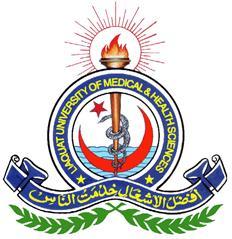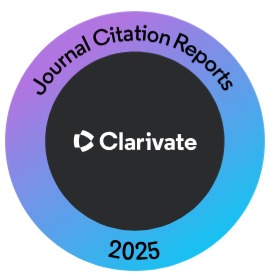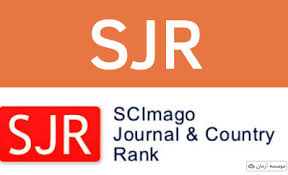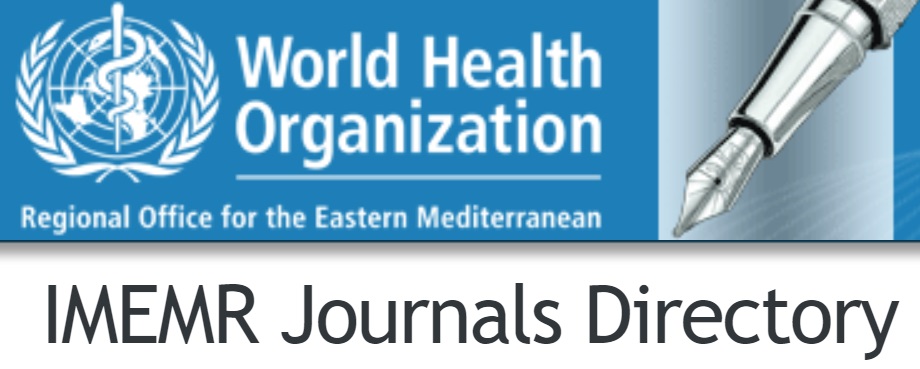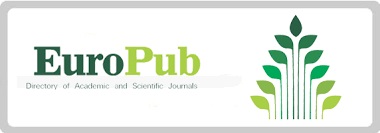Exploring Perspectives of Disaster Survivors on Islamic-Based Nurses' Disaster Response Competencies: A Study from Disaster Front Area
Keywords:
Disaster, response, survivor, nurses, Islamic-based, competencyAbstract
Objective: The study aims to explore the perspective of disaster survivors on Islamic-based nurses' competencies in response to disasters, principally in handling psychological, psychosocial, and spiritual conditions.
Methodology: A qualitative study with a descriptive phenomenology design was conducted. The data collection using a focus group discussion with five interview guides for nine disaster survivors was involved in this study. The data was evaluated through thematic analysis using sub-themes and themes, followed by qualitative steps.
Results: The study identified three themes related to disaster survivors' perspective: 1) Perception of disaster: tests and punishments, 2) Nurses' competencies: skills and attitude, and 3) Integrating Islamic values: spiritual support and motivation.
Conclusion: The study indicated that the Islamic-based nurses' disaster response competencies identified an essential role in dealing with psychological, psychosocial, and spiritual problems among disaster survivors from the Islamic perspective.
References
Husna C, Miranda F, Darmawati D, Fithria F. Emergency preparedness information among nurses in response to disasters. Enferm Clin. 2022; 32(1): S44-9.
Badan Nasional Penanggulangan Bencana Aceh. Kajian risiko bencana Aceh 2016 - 2020 [Aceh disaster risk assessment 2016-2020]. In: Aceh disaster risk assessment 2016-2020 [Internet]. Jakarta; 2015. p. 1–43. Available from: chrome-extension://efaidnbmnnnibpcajpcglclefindmkaj/https://bpba.acehprov.go.id/media/2022.09/dokumen_kajian_risiko_bencana_aceh_2016_-_20201.pdf
Undang-Undang No.24. Undang-Undang Republik Indonesia Nomor 24 Tahun 2007 tentang penanggulangan bencana (Law of the Republic of Indonesia number 24 of 2007 concerning disaster management). 2007; 1.
Thordardottir EB, Gudmundsdottir B, Petursdottir G, Valdimarsdottir UA, Hauksdottir A. Psychosocial support after natural disasters in Iceland-implementation and utilization. Int J Disaster Risk Reduction. 2018; 27: 642–8. doi: 10.1016/j.ijdrr.2017.11.006.
Smith S, Grant A. The corporate construction of psychosis and the rise of the psychosocial paradigm: Emerging implications for mental health nurse education. Nurse Educ Today. 2016; 39: 22-5.
Hughes BP, Degregory C, Elk R, Graham D, Hlall EJ, Ressallat J. Spiritual Care and Nursing: A Nurses' Contribution and Practice. In: Rev. Brian P. Hughes, editor. Spiritual Care and Nursing: A Nurses' Contribution and Practice. 1st ed. South Carolina: HealthCare Chaplaincy Network; 2017. p. 1–24.
Veenema TG, Griffin A, Gable AR, MacIntyre L, Simons RN, Couig MP et al. Nurses as Leaders in Disaster Preparedness and Response-A Call to Action. J Nurs Scholarship. 2016; 48(2): 187-200.
Husna C, Kamil H, Yahya M, Tahlil T. An Intervention Program to Improve Nurses' Competencies in Disaster Response: A Mixed-Methods Study Protocol. Belitung Nurs J. 2020; 6(3): 85–90.
Putra A, Kamil H, Yuswardi Y, Satria B. Knowledge and Practice among Public Health Nurses in Disaster Response Phase. J Liaquat Univ Med Health Sci. 2022; 21(2): 89–96.
World Health Organization and International Council of Nurses. ICN Framework of Disaster Nursing Competencies [Internet]. 1st ed. International Council of Nurses, editor. Geneva, Switzerland: World Health Organization and Western Pacific Region; 2009. 1–84 p. Available from: chrome-extension://efaidnbmnnnibpcajpcglclefindmkaj/http://www.apednn.org/doc/resourcespublications/ICN Framework of Disaster Nursing Competencies ICN 2009.pdf
Dewan Syariah Nasional Majelis Ulama Indonesia [DSN-MUI], Majelis Upaya Kesehatan Islam Seluruh Indonesia [MUKISI]. Standar dan Instrument Sertifikasi Rumah Sakit Syariah. 1st ed. Jakarta: Majelis Syuro Upaya Kesehatan Islam Indonesia; 2017. 1–131 p.
Husna C, Yahya M, Kamil H, Tahlil T. Islamic-based Disaster Response Competencies: Perceptions, Roles and Barriers Perceived by Nurses in Aceh, Indonesia. Open Nurs J. 2021; 15(1): 18–28.
Graneheim U, Lundman B. Qualitative content analysis in nursing research: Concepts, procedures and measures to achieve trustworthiness. Nurse Educ Today. 2004; 24(1): 105-12.
Källberg A sofie, Ehrenberg A, Florin J, Östergren J, Göransson KE. Physicians' and nurses' perceptions of patient safety risks in the emergency department. Int Emerg Nurs. 2017; 33: 14-9.
Vaismoradi M, Turunen H, Bondas T. Content analysis and thematic analysis: Implications for conducting a qualitative descriptive study. Nurs Health Sci. 2013; 15(3): 398-405.
Buczkowski K, Marcinowicz L, Czachowski S, Piszczek E, Sowinska A. What kind of general practitioner do I need for smoking cessation? Results from a qualitative study in Poland. BMC Fam Pract. 2013; 14(1): 1-10.
Adiyoso W, Kanegae H. The preliminary study of the role of Islamic teaching in the disaster risk reduction (a qualitative case study of Banda Aceh, Indonesia). Procedia Environ Sci. 2013; 17(1): 918-27. doi: 10.1016/j.proenv.2013.02.110.
Undang-Undang No.24. Undang-Undang Republik Indonesia Nomor 24 Tahun 2007 tentang penanggulangan bencana (Law of the Republic of Indonesia number 24 of 2007 concerning disaster management). Vol. 1. 2007.
Badan Nasional Penanggulangan Bencana. Rencana nasional penanggulangan bencana 2015-2019 [National disaster management plan 2015-2019]. Jakarta; 2014. 13–33 p.
Ahmadi F, Erbil P, Ahmadi N. Religion, culture and meaning-making coping: A Study among cancer patients in Turkey. J Relig Health. 2019; 58(4): 1115-24.
Ghafory?Ashtiany M. View of Islam on earthquakes, human vitality and disaster. Disast Prevent Manag. 2009; 18(3): 218-32.
Veenema TG, Griffin A, Gable AR, MacIntyre L, Simons RN, Couig MP et al. Nurses as Leaders in Disaster Preparedness and Response - A Call to Action. J Nurs Scholarsh. 2016; 48(2): 187-200.
Aksa FI. Islamic perspectives in disaster: An alternative to changing fatalistic attitudes. Jàmbá J Disaster Risk Studies. 2020; 12(1): 1-4.
Fatimahsyam, Shadiqin SI, Rahman A. Islam and Disaster: A Refined Concept Through Community's Disaster Perception of Post The 2004 Indian Ocean Tsunami. Human Soc Sci Rev. 2019; 6(3): 16-21.
Nichols K. Psychological care for ill and injured people: A clinical guide [Internet]. 1st ed. Philadelphia: Open University Press; 2003. 1–251 p. Available from: https://books.google.co.id/books?id=xRSN8y9MVGYC&printsec=frontcover&hl=id&source=gbs_atb#v=onepage&q&f=false
Supriatin E. Perilaku Caring Perawat Berdasarkan Faktor Individu dan Organisasi (Nurses’ Caring Behavior Based on Individual and Organizational Factors). Jurnal Keperawatan Indonesia. 2015; 18(3): 192-8.
Lismijar. Pembinaan sikap ikhlas menurut pendidikan Islam [Development of a sincere attitude according to Islamic education]. Banda Aceh; 2018. 83-105.
Iskandar M. Fiqh Anticipation: Mitigation Concept Based on Islamic Law. IOP Conf Ser Earth Environ Sci. 2019; 273. 012045.
Patimah I, Suryani, Nuraeni A. Pengaruh Relaksasi Dzikir terhadap Tingkat Kecemasan Pasien Gagal Ginjal yang Menjalani Hemodialisa. 2015; 3(1). https://doi.org/10.24198/jkp.v3i1.95.
Wulandari I, Huriyati A. Anxiety's level of Bantenes patients: the effect of dhikr therapy before surgical procedure. 2015; 3(1): 36-40.
Aisyah H, Naan. Dzikir sebagai teknik meditasi sufistik dalam meningkatkan kualitas energi tubuh. Al Amin Jurnal kajian Ilmu dan budaya Islam. 2020; 3(2): 213-25.
Mulyanti M, Massuhartono M. Terapi Religi Melalui Dzikir Pada Penderita Gangguan Jiwa. J Islamic Guidance Counseling. 2018; 2(2): 201-14.
Rosidin. Sirah nabawiyah dalam perspektif teori kebutuhan versi David McClelland. Ta’limuna. 2015; 4(1): 21-42.
Husna C, Elvania J. Pengetahuan Dan Sikap Perawat Terhadap Penanganan Masalah Psikologis Dan Spiritual Pada Pasien Pasca Bencana: A Comparative Study (Knowledge and Attitudes of Nurses on Handling Psychological and Spiritual Problems in Post-Disaster Patients: a Comparative. Jurnal Perawat Indonesia. 2020; 4(2): 357.
Sipon S, Sakda MF, Mustaffa CS, Khalid MS, Ariffin MT, Nazlib NN et al. Spirituality among Flood Victims: A Comparison between Two States. Procedia Soc Behav Sci. 2015; 185: 357-60. doi: 10.1016/j.sbspro.2015.03.410.
Timalsina R, Songwathana P. Australasian Emergency Care Factors enhancing resilience among Older Adults experiencing Disaster: A Systematic Review. Australas Emerg Care. 2020; 23(1): 11-22.
Sipon S, Fo M, Su C, Ahmad N, Sukeri M, Taib M et al. Spirituality and Social Support in Flood Victims. Procedia Soc Behav Sci. 2015; 185: 361-4.
Husna C, Kamil H, Yahya M, Tahlil T. Exploring the perspective of Muslim scholars on the roles of nurses' response to disaster: a qualitative study. Ment Health Relig Cult. 2021; 24(5): 478-92. doi: 10.1080/13674676.2021.1876004.
Downloads
Published
How to Cite
Issue
Section
License
Copyright (c) 2024 Journal of Liaquat University of Medical & Health Sciences

This work is licensed under a Creative Commons Attribution-NonCommercial-ShareAlike 4.0 International License.
Submission of a manuscript to the journal implies that all authors have read and agreed to the content of the undertaking form or the Terms and Conditions.
When an article is accepted for publication, the author(s) retain the copyright and are required to grant the publisher the right of first publication and other non-exclusive publishing rights to JLUMHS.
Articles published in the Journal of Liaquat University of Medical & health sciences are open access articles under a Creative Commons Attribution-Noncommercial - Share Alike 4.0 License. This license permits use, distribution and reproduction in any medium; provided the original work is properly cited and initial publication in this journal. This is in accordance with the BOAI definition of open access. In addition to that users are allowed to remix, tweak and build upon the work non-commercially as long as appropriate credit is given and the new creations are licensed under the identical terms. Or, in certain cases it can be stated that all articles and content there in are published under creative commons license unless stated otherwise.


